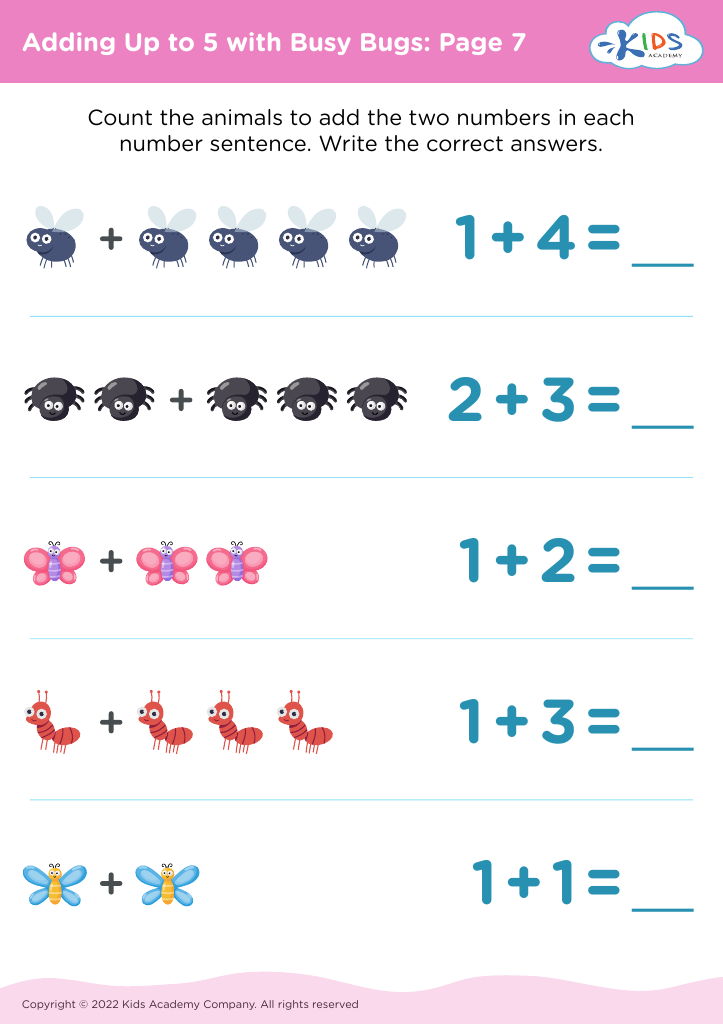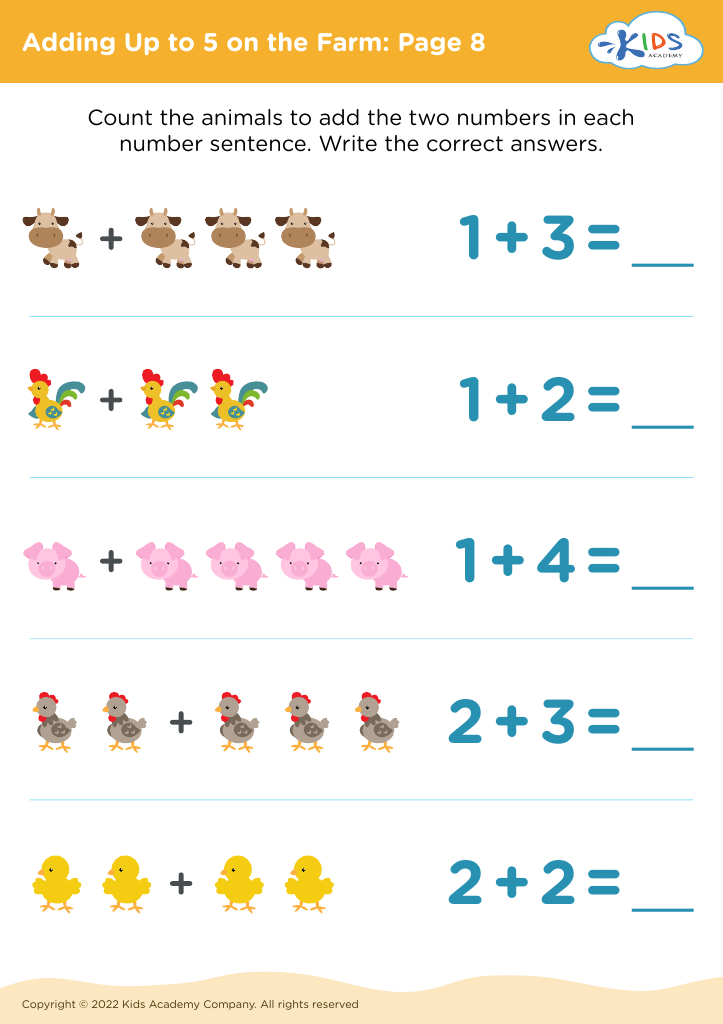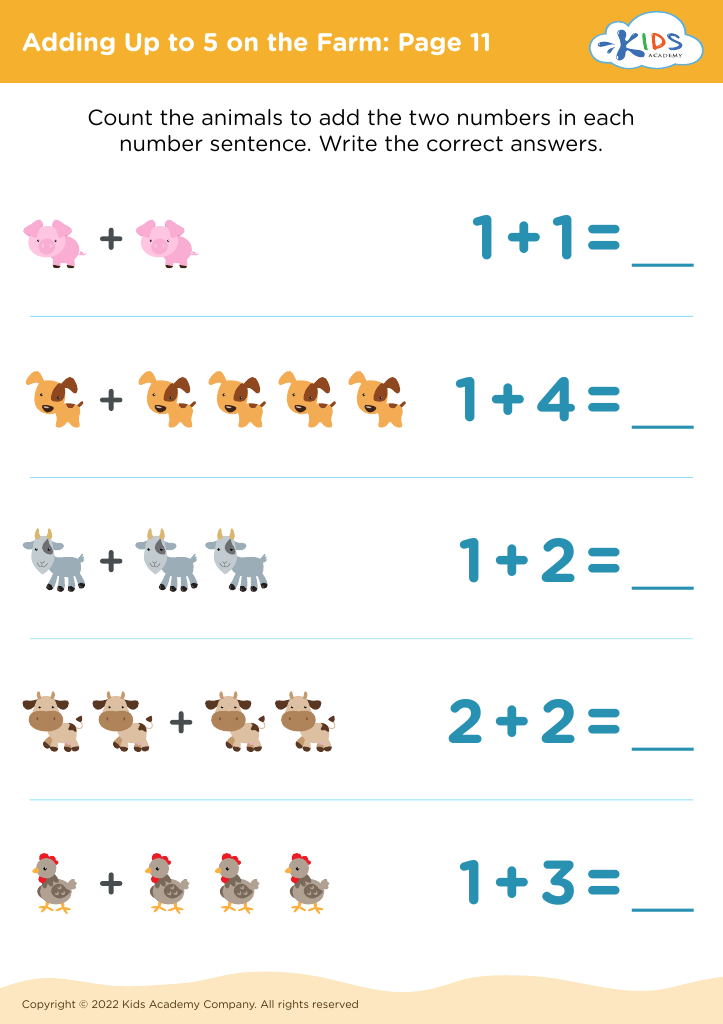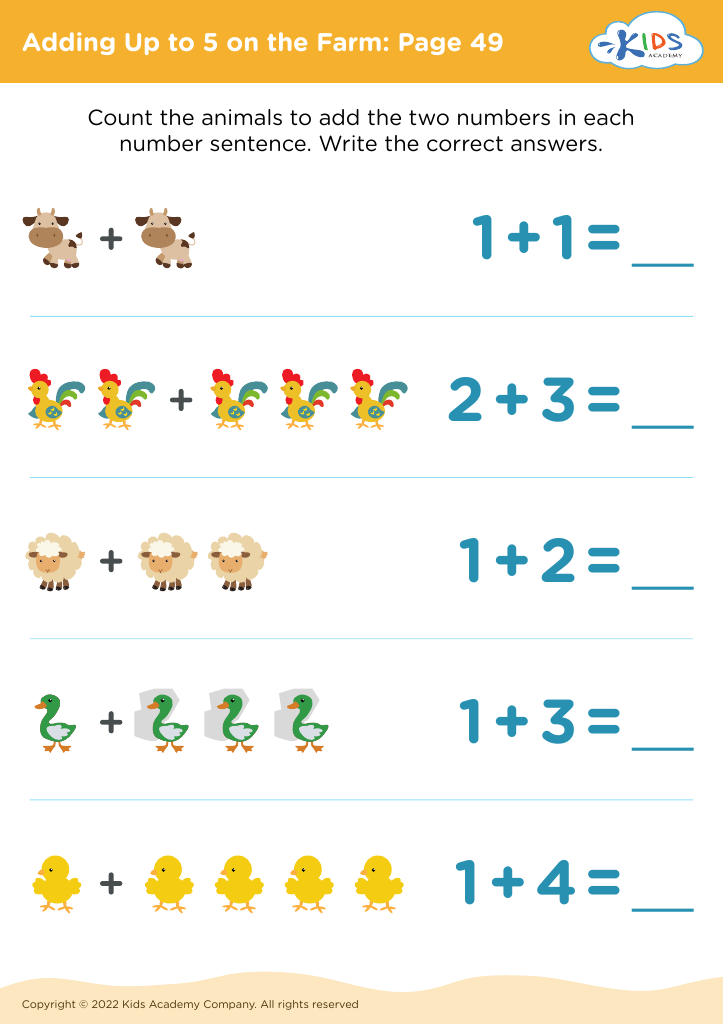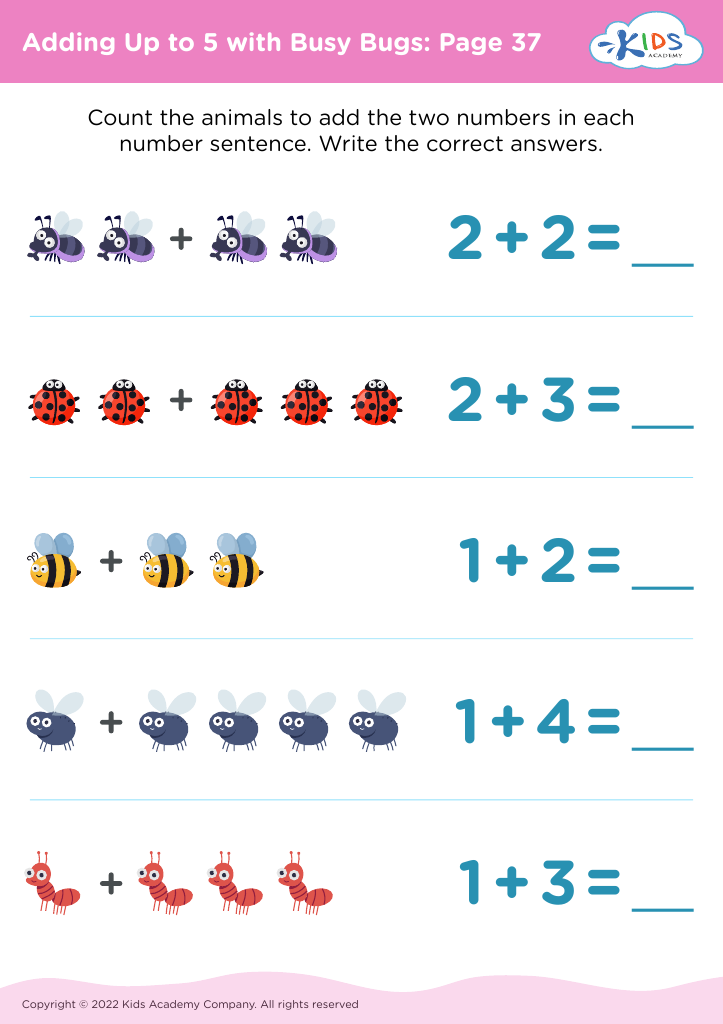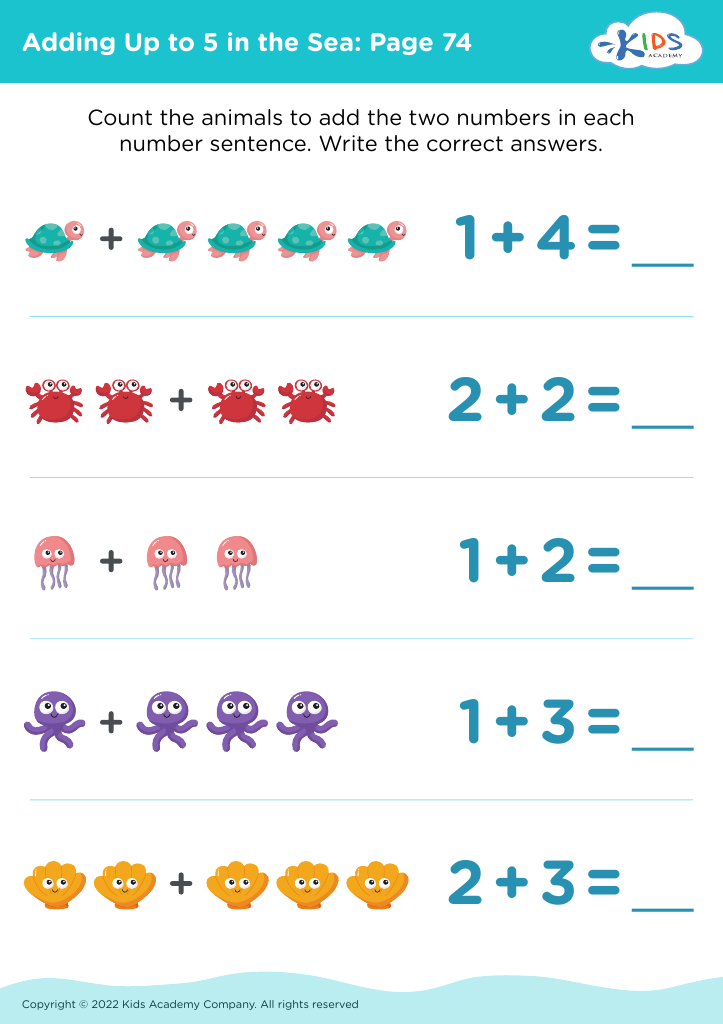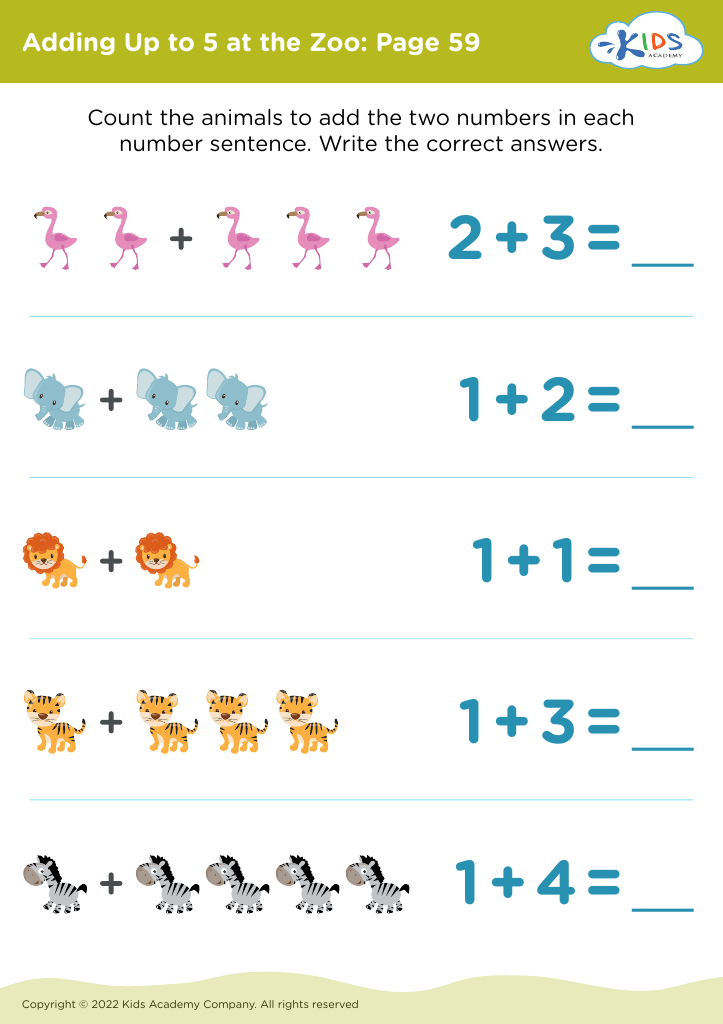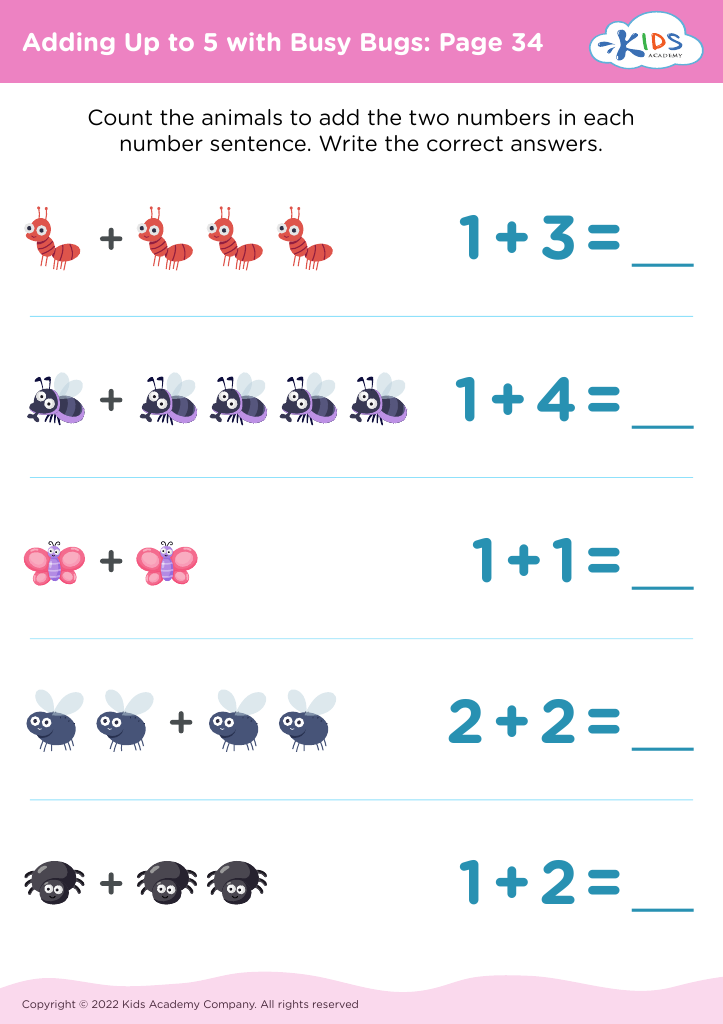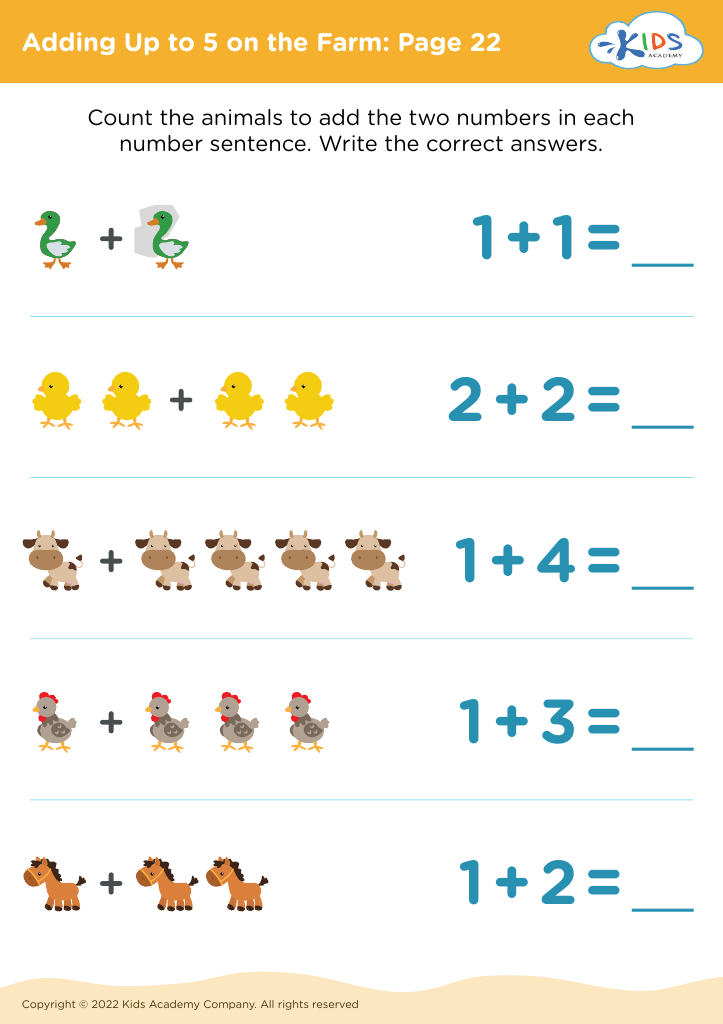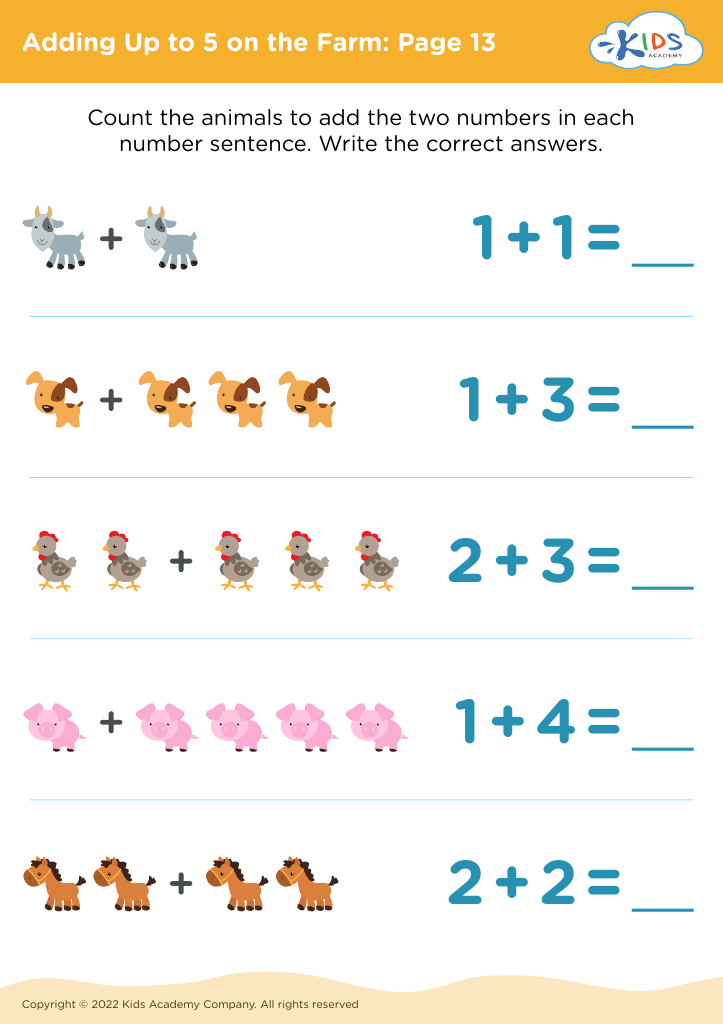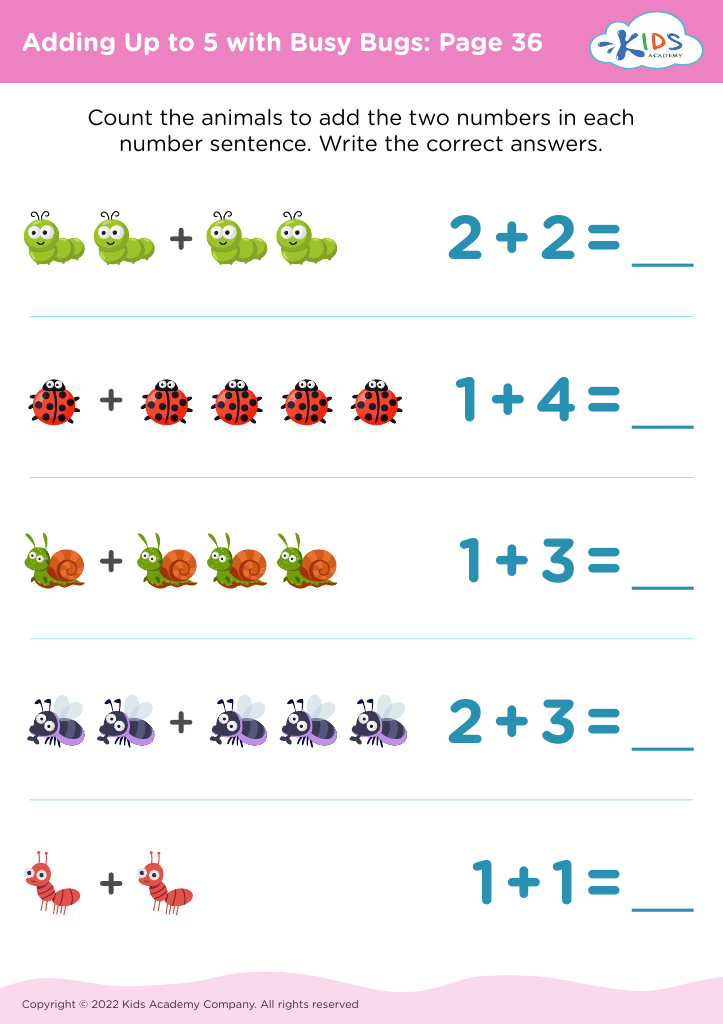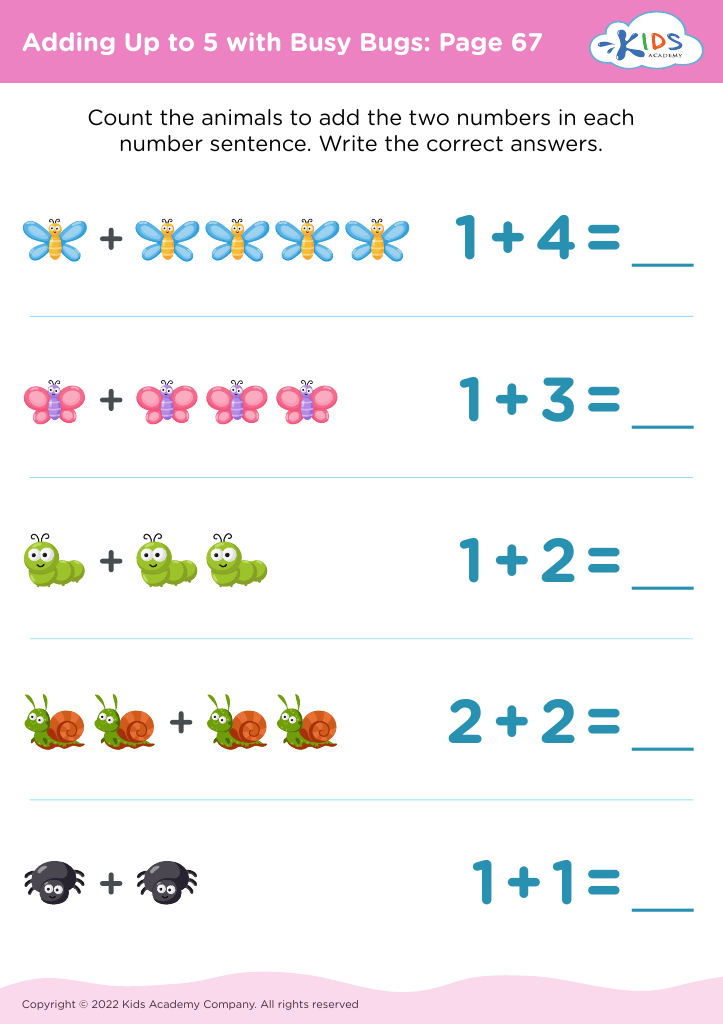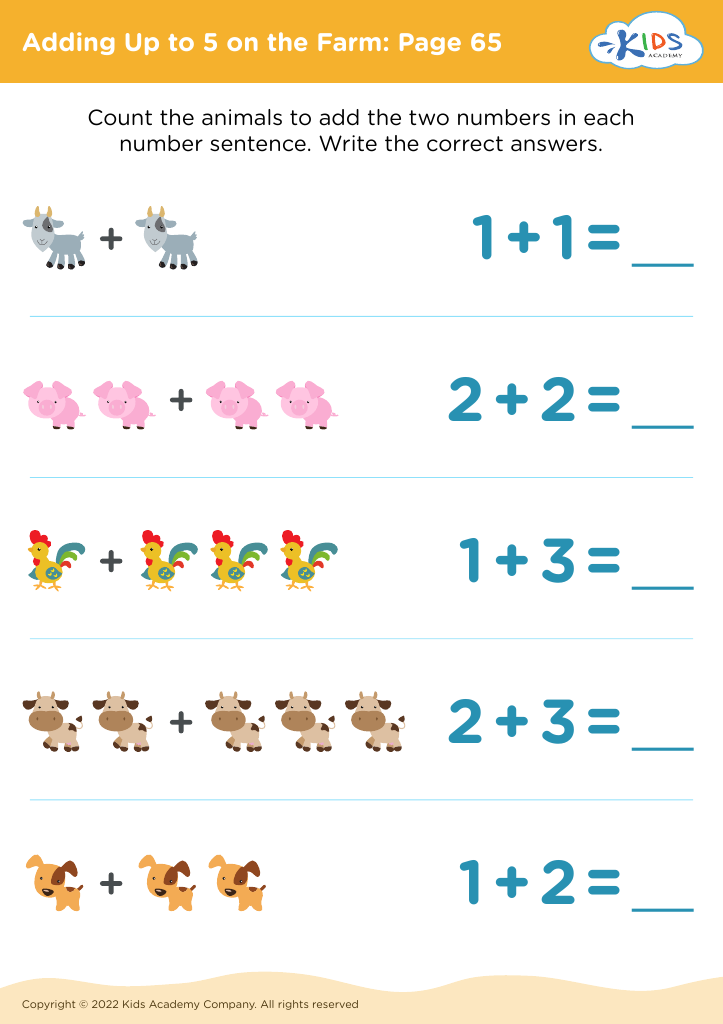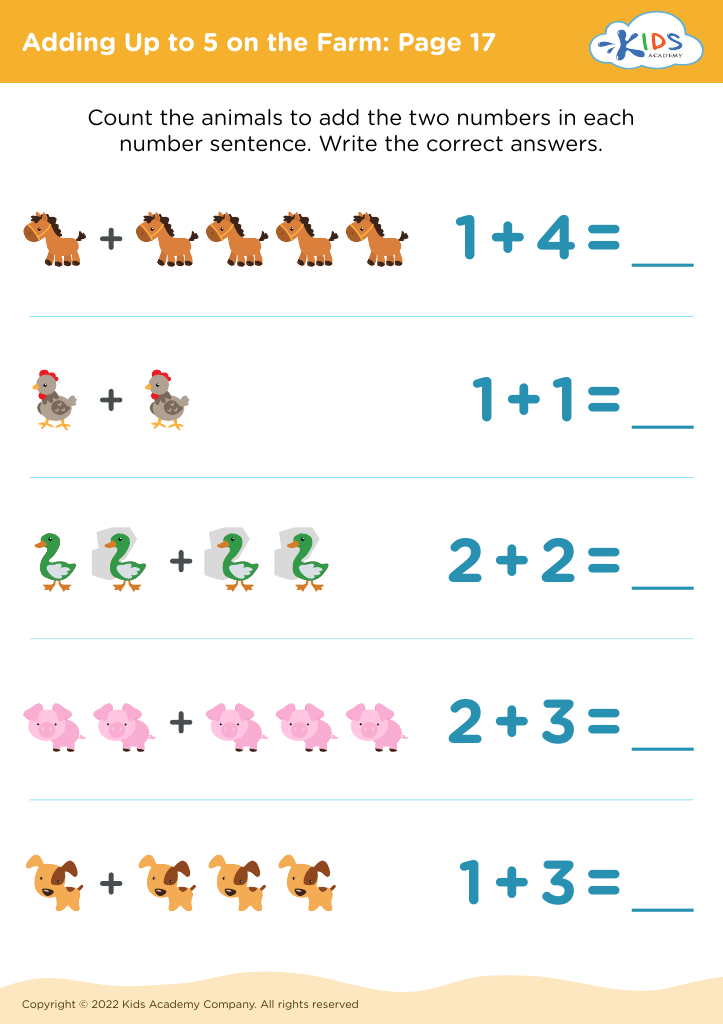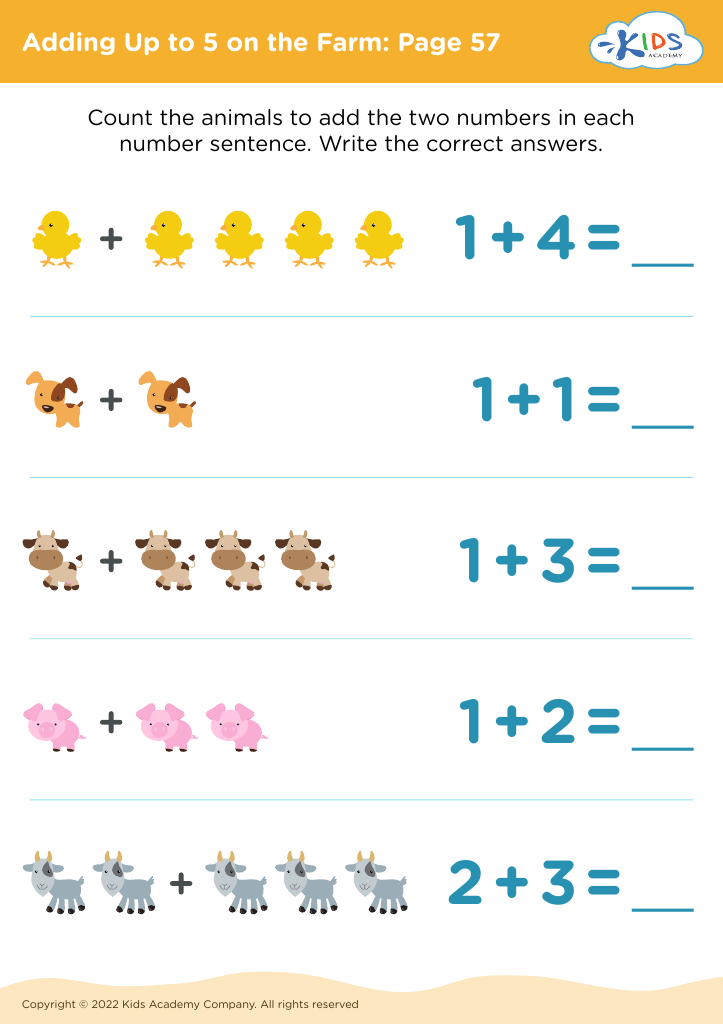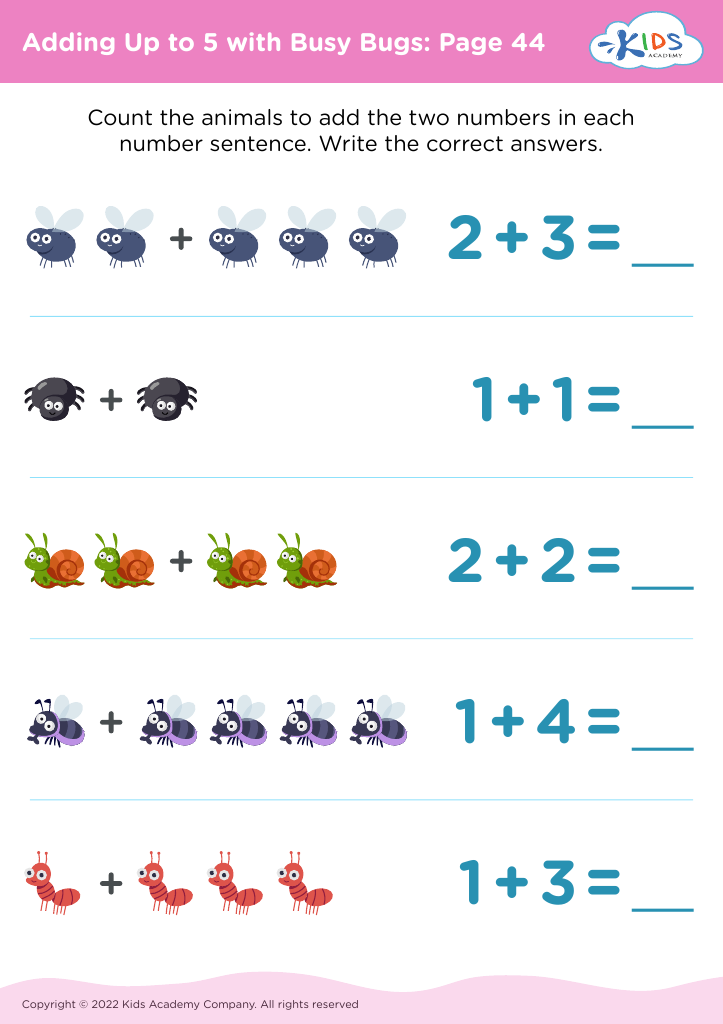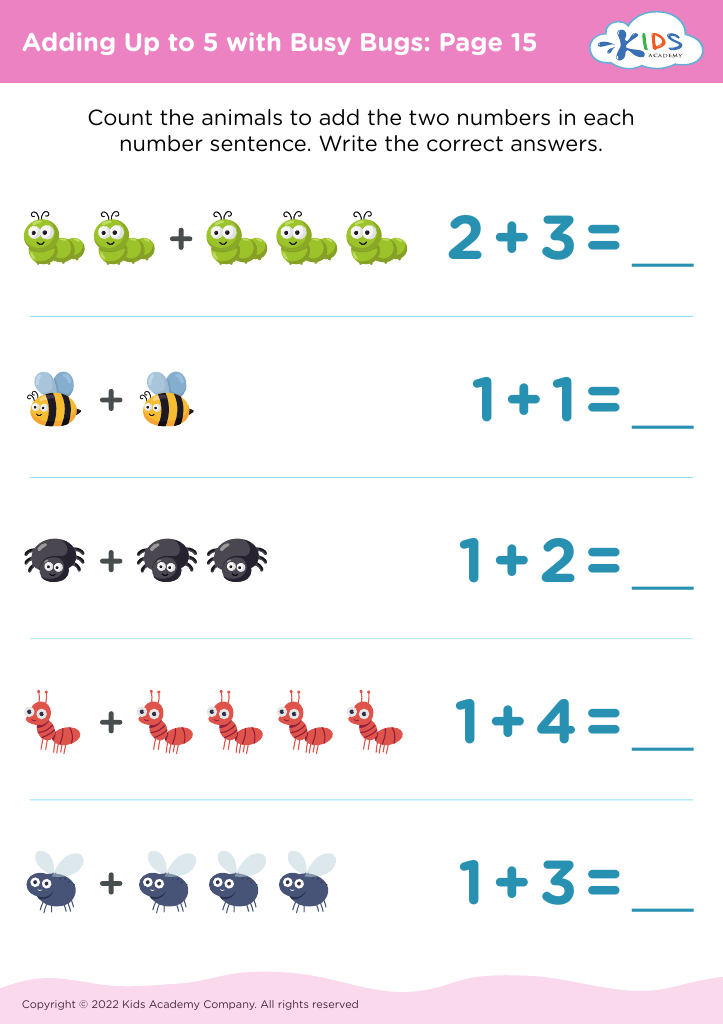Understanding quantity Math Worksheets for 4-Year-Olds
24 filtered results
-
From - To
Discover our engaging Understanding Quantity Math Worksheets designed specifically for 4-year-olds! These worksheets provide a fun and interactive way for young learners to explore foundational math concepts such as counting, comparing quantities, and recognizing numerical values. Our carefully crafted activities encourage hands-on learning through colorful illustrations and relatable themes, making it easy for children to grasp the basics of quantity. With a focus on early math skills, these worksheets are perfect for parents and educators looking to enrich a child's learning experience. Download our printable worksheets today and watch your little one develop confidence in their math abilities while having fun!
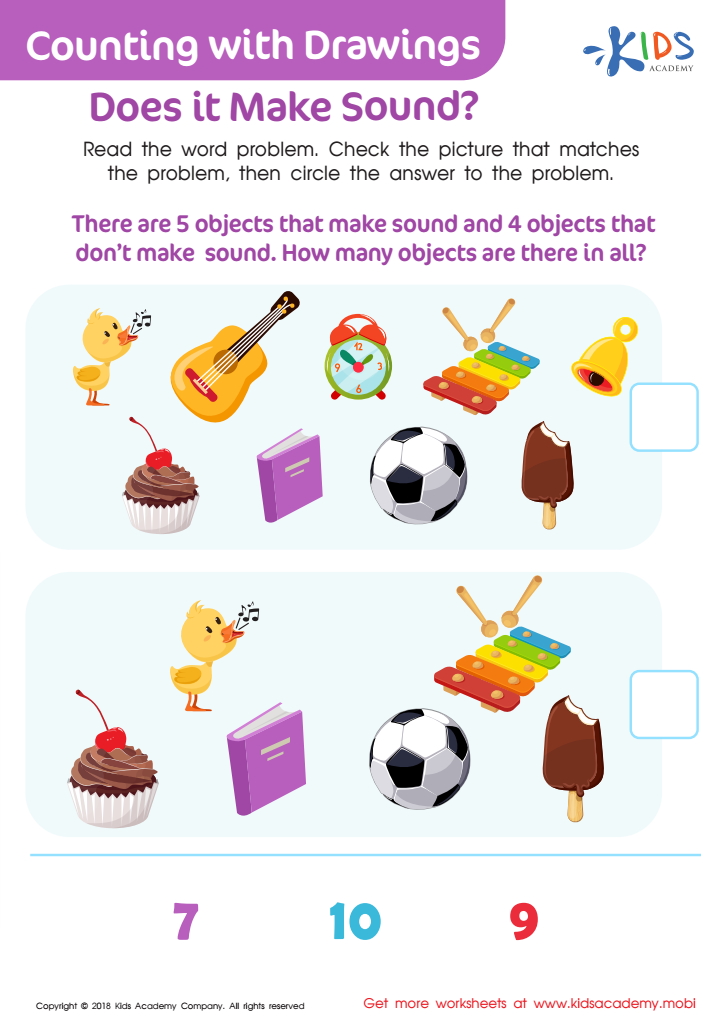

Counting With Drawings. Does It Make Sound? Worksheet
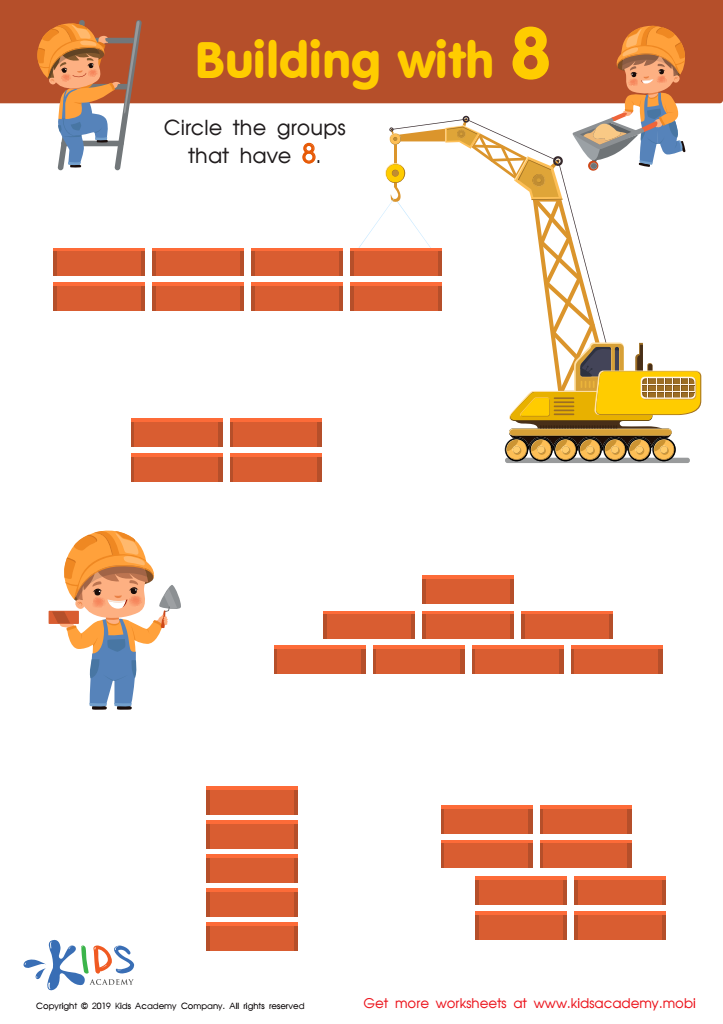

Building with 8 Worksheet


Counting Seedlings Worksheet
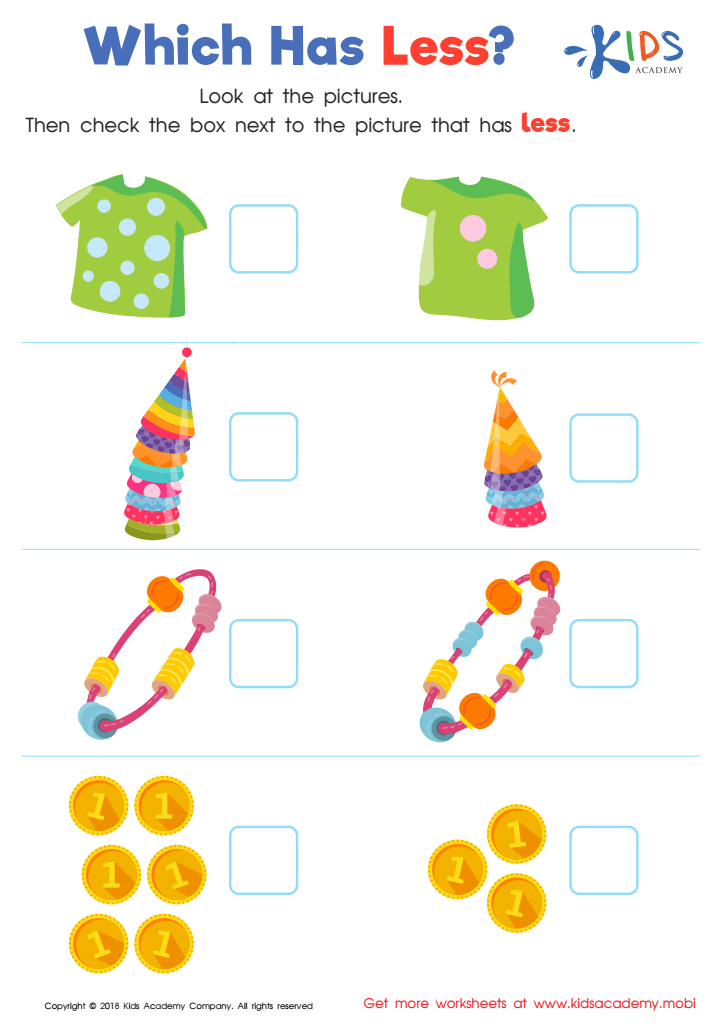

Which Has Less? Worksheet
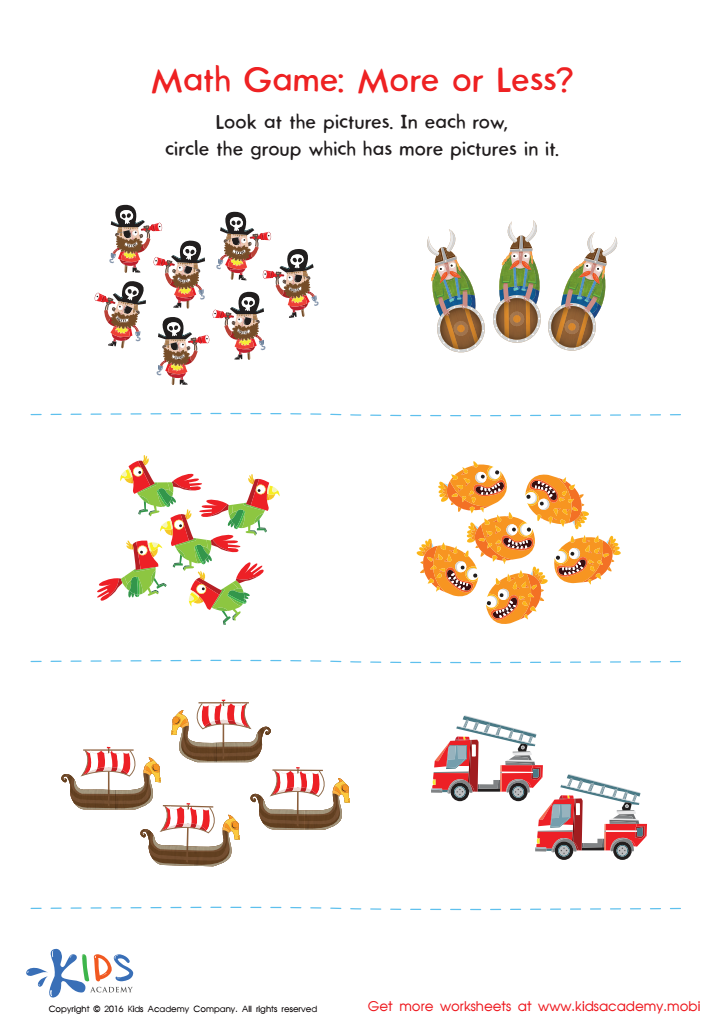

More or Less Worksheet
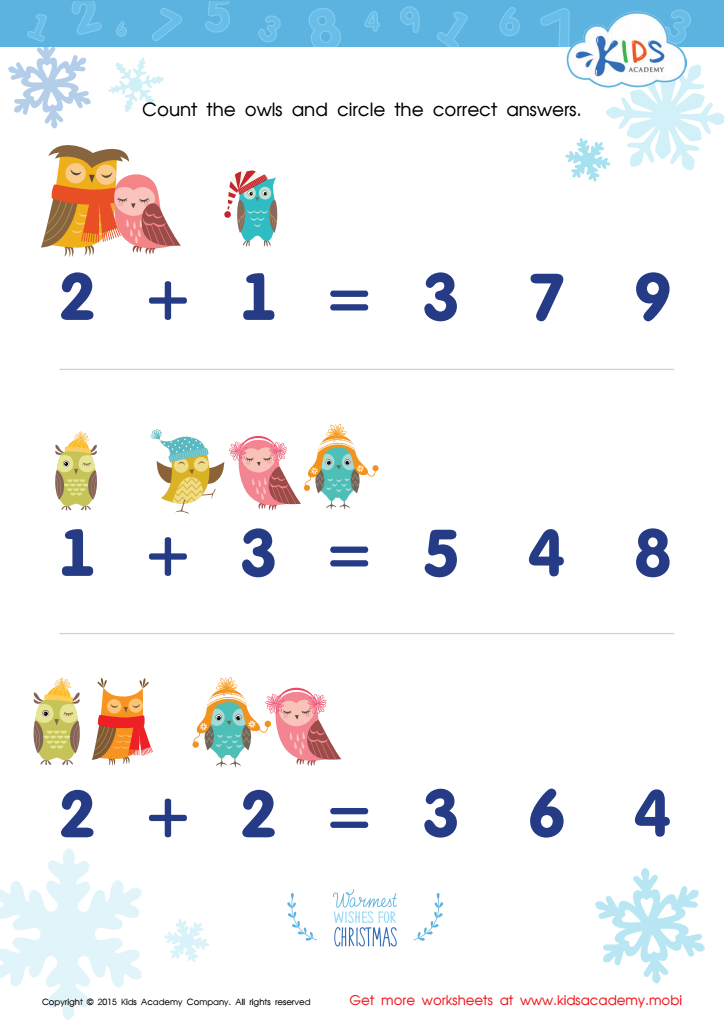

Count Little Owls Worksheet
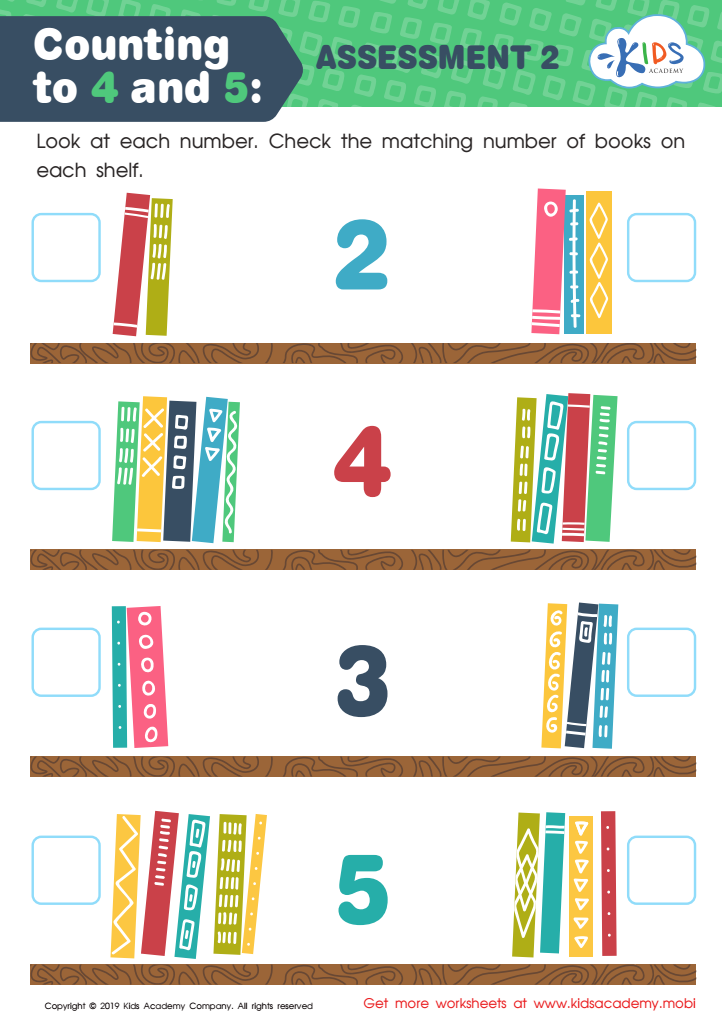

Counting to 4 and 5: Assessment 2 Worksheet
Understanding quantity is fundamental for 4-year-olds as it lays the groundwork for more advanced mathematical concepts. At this age, children are naturally curious and eager to learn, making it an ideal time to introduce the idea of quantity. Developing an early understanding of quantity helps foster critical thinking and problem-solving skills, essential for success in later academic endeavors.
Parents and teachers should pay special attention to this concept because it enhances children's cognitive development. Engaging in activities that involve counting, comparing sizes, and sorting helps children internalize number concepts and develops their number sense. This early mathematical foundation can ease future learning and reduce anxiety around math later in their education.
Moreover, promoting a solid grasp of quantity also enriches children's everyday experiences. Number-related activities and games not only create enjoyable learning moments but also strengthen their language, social skills, and logical thinking.
Incorporating quantity understanding into play fosters a love for learning and helps children make connections between math and their world. Consequently, parents and teachers play a vital role in encouraging and nurturing these early mathematical skills, ensuring children are prepared for future educational challenges and everyday life scenarios.
 Assign to My Students
Assign to My Students

